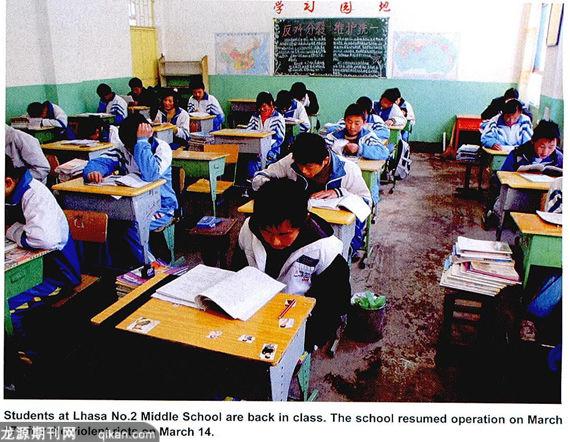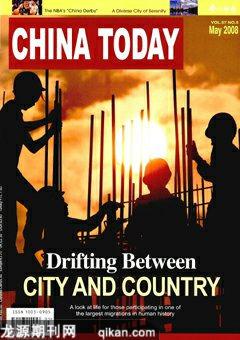Prosperity Will Prevail
Tranquility was smashed in Lhasa, capital city of Tibet Autonomous Region, on March 14. Armed with stones, bricks and sticks, the rioters left a trail of crimes, including beatings, smashings, lootings and arson, victimizing ordinary residents in the city. How did the violence happen? And what was the impact? On March 24, Beijing Review reporter Feng Jianghua interviewed Tanzen Lhundup, Research Fellow and Vice Director at the Social and Economics Institute, China Tibetology Research Center.
“Social stability is the precondition for prosperity. Who wants to trade a peaceful and prosperous life for turmoil?”
—Tanzen Lhundup, Research Fellow and Vice Director at the Social and Economics Institute, China Tibetology Research Center

How has the riot affected the lives of local residents?
Tanzen Lhundup: The riot has seriously disrupted the social order and daily lives of local residents. About a dozen innocent residents were killed; adults could not go to work as usual and were afraid to walk the streets; kids did not dare leave school without the company of their parents; shop owners had to close their businesses. The good part is that the local government contained the unrest within two or three days, and restored social order. The government has remained confident and resolute, demonstrating strong governing ability and improved crisis management skills.
How do local residents see the riot?
Tanzen Lhundup: The greatest wish for local residents in Tibet is to live a peaceful, happy and prosperous life. Right now, Tibetan residents are on their way to prosperity and are generally happy with their lives. The recent violent crimes were plotted by a small group of people. The criminals did not only break the law, but also went against the will of local residents and hurt their interests.
What are the expectations of Tibetan residents for the social and economic development of Tibet?
Tanzen Lhundup: The Chinese Government has a consistent policy and mission—to improve the living standard of the people and allow the Tibetan people to fully enjoy the fruits of reform and opening-up. To lift the Tibetan people out of poverty, the central government has supplied Tibet with a large amount of personnel, materials and funding. The central government has paid for most of the fiscal expenditures of the local government and infrastructure construction in Tibet. In fact, for every RMB 10 (US $1.40) that the government of Tibet Autonomous Region spent, RMB 9 (US $1.26) is from the central government.
With social and economic development, the living standards of the Tibetan people have been significantly improved. One of the most obvious changes is that improvements in transportation have brought more tourists to Tibet, invigorating the local catering and hotel industries, enlarging the demand for the production of Tibetan-style artifacts, such as Thangka, and boosting employment and the revenues of local farmers and herdsmen.
Recently, Premier Wen Jiabao said that the governments preferential policy toward Tibet will not change under the new leadership chosen at the 11th National Peoples Congress. In the next five years, the government will invest more in Tibet and promote fast and steady economic and social growth in the region. Under the preferential policy, more and more Tibetan residents are living a moderately prosperous life, and are looking forward to a promising future. Social stability is the precondition for prosperity.
Who wants to trade a peaceful and prosperous life for turmoil? The recent violent crimes have obvious political motivations. Most of Tibets residents strongly resent the riot. Many Tibetans risked their lives to rescue and protect the Han Chinese. This indicates harmony between different ethnic groups in Tibet, which is a key reason that the riots could be brought under control so quickly.
Will the riots hurt social and economic development in Tibet?
Tanzen Lhundup: The incident will affect social and economic growth in Tibet in the short run. The government will keep close watch on the impact. In the long run, no one can block social and economic development in Tibet. The historical trend is irreversible.

